Over 30 years of anarchist writing from Ireland listed under hundreds of topics
Mark Hoskins
All the Evil in the World – Pandora, the One Percent and the New European Reaction
 A spectre is haunting the people of Europe, but this time it's not one to be welcomed. All the powers of new Europe have entered into an unholy alliance to raise this spectre: Merkel and Rajoy, Hollande and Cameron, Irish Blueshirts and Greek state police. Where is the movement in opposition that has not been decried as terroristic by its opponents in power? Where is the opposition that has not cried out for law and order in the face of the more progressive parties? Two questions result from these facts:
A spectre is haunting the people of Europe, but this time it's not one to be welcomed. All the powers of new Europe have entered into an unholy alliance to raise this spectre: Merkel and Rajoy, Hollande and Cameron, Irish Blueshirts and Greek state police. Where is the movement in opposition that has not been decried as terroristic by its opponents in power? Where is the opposition that has not cried out for law and order in the face of the more progressive parties? Two questions result from these facts:
-
What class, classes or section of the population is conjuring up this phantasm? IE, what classes benefit from authoritarian extremism?
-
What is to be done? IE, What course of action should the people of Europe take to counter this threat? And what role do the libertarian left have to play in bringing that course of action to fruition?
To answer these questions, it is essential to examine the current wave of reaction across the European continent and asses its purpose and its source.
Water Charges: They didn't ask our consent - The law must be broken!
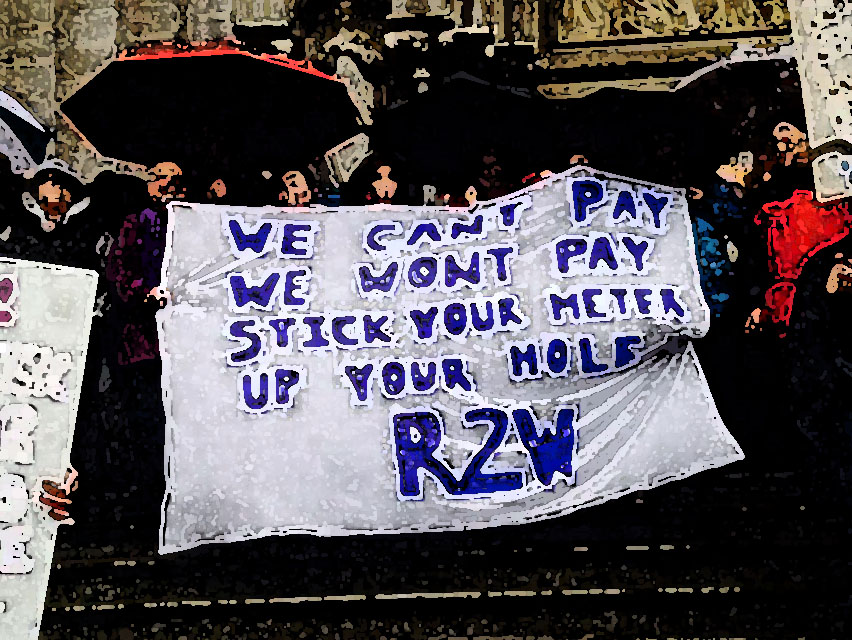 The recent announcement that people who have returned their registration packs to Irish Water blank, or emblazoned with the words “No consent, no contract”, are now registered with the service provider, should be enough to expose the counter-legal mumbo jumbo being spread by Direct Democracy Ireland (DDI), and other groups influenced by the “Freeman of the land” ideology.
The recent announcement that people who have returned their registration packs to Irish Water blank, or emblazoned with the words “No consent, no contract”, are now registered with the service provider, should be enough to expose the counter-legal mumbo jumbo being spread by Direct Democracy Ireland (DDI), and other groups influenced by the “Freeman of the land” ideology.
DDI claim that the registration pack is a contract and that by returning it with a statement of non-consent, you have made your intention not to make a contract with Irish Water clear and therefore you do not have to pay the water charge. Not only that, but they claim that if you are brought to court for non-payment, all you need to do is show a photo of the pack to back up your case.
Bread and Robots: Automation, urban farming and the abolition of wage labour.
“Let us be lazy in everything, except in loving and drinking, except in being lazy.”
- Gotthold Ephraim Lessing

General strike - Protest or process?
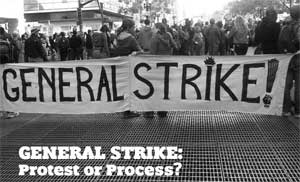 On Merrion square, an evacuation is in progress. Thousands of people scatter in all directions; panic is etched across their faces. To the casual observer, this is a life or death situation. There is however, no crazed gunman, no volcano, no earthquake nor alien invasion. They are fleeing the catastrophe that is the Irish Congress of Unions (ICTU) bank debt protest.
On Merrion square, an evacuation is in progress. Thousands of people scatter in all directions; panic is etched across their faces. To the casual observer, this is a life or death situation. There is however, no crazed gunman, no volcano, no earthquake nor alien invasion. They are fleeing the catastrophe that is the Irish Congress of Unions (ICTU) bank debt protest.
Elections: Quicksand for Socialist Ideas
 We don't live in a socialist world. In fact never before has capitalism exercised such total hegemony. Despite huge disaffection with austerity and global capitalism, for billions of people the world over, an alternative is impossible to imagine. One of the key tasks of the left then, is not just to oppose attacks on the living conditions of working class people, but to provide an alternative vision of a society where we do not exist to serve the economy, but rather the economy exists to serve us, a society where the slogan "from each according to their ability, to each according to their needs" becomes a reality.
We don't live in a socialist world. In fact never before has capitalism exercised such total hegemony. Despite huge disaffection with austerity and global capitalism, for billions of people the world over, an alternative is impossible to imagine. One of the key tasks of the left then, is not just to oppose attacks on the living conditions of working class people, but to provide an alternative vision of a society where we do not exist to serve the economy, but rather the economy exists to serve us, a society where the slogan "from each according to their ability, to each according to their needs" becomes a reality.
Not Waving but Drowning: Precarity and the Working Class

In ‘Not Waving but Drowning: Precarity and the Working Class’, Mark Hoskins takes a critical look at the idea put forward by some academics and even parts of the anti-capitalist movement that the “precariat” is the revolutionary subject of our epoch. After examining the subjective conditions of the precarious subject today and comparing its objective conditions to those of the working class of the last century, he goes on to explore how these conditions relate to our end goal, a communist society and what lessons that can teach us in our attempt to get there.
Single Issue Campaigns, Community Syndicalism & Direct Democracy
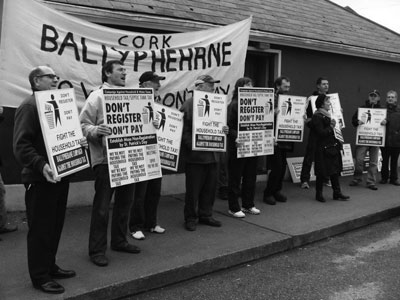 There’s been a lot of talk lately about participatory and direct democracy. Renewed interest in alternative forms of organising society has arisen from increasing dissatisfaction with mainstream politics and the domination of the economy by a few corporations. This dissatisfaction has found its expression in the Arab spring, the May 15th movement in Spain and the Occupy movement in the English-speaking world. Where the anti-capitalist movement of the last decade focussed almost exclusively on the power of the corporations and finance capital, this current tendency is to also focus on politics and the state.
There’s been a lot of talk lately about participatory and direct democracy. Renewed interest in alternative forms of organising society has arisen from increasing dissatisfaction with mainstream politics and the domination of the economy by a few corporations. This dissatisfaction has found its expression in the Arab spring, the May 15th movement in Spain and the Occupy movement in the English-speaking world. Where the anti-capitalist movement of the last decade focussed almost exclusively on the power of the corporations and finance capital, this current tendency is to also focus on politics and the state.
McDonalds Workers in New Zealand Win May Day Victory Over Zero Hours Contracts
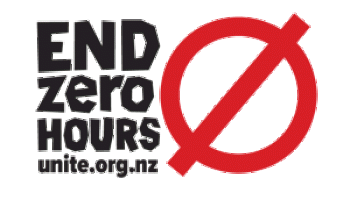 Congratulations to workers at McDonalds and their union, Unite in New Zealand/Aotearoa who have won their battle with the employer and ended zero hour contracts at the fast food giant!
Congratulations to workers at McDonalds and their union, Unite in New Zealand/Aotearoa who have won their battle with the employer and ended zero hour contracts at the fast food giant!
The workers were due to strike today 1st of May, but McDonalds backed down at the last minute. From 1 October 2015, all McDonald's employees will be offered 80 per cent security of hours, up to a 32 hour weekly cap, based on the average of the previous fixed quarterly worked hours.
Irish Anarchist Review Issue 11
The eleventh issue of the Irish Anarchist Review goes to press in the middle of the biggest battle in the war against austerity in Ireland to date. Tens of thousands of people have taken part in mass demonstrations against the water charges, up and down the country thousands have taken part in acts of physical resistance against water meter installation and hundreds of thousands, at the very least, are getting ready to participate in a mass boycott of the charge. Furthermore, the level of political consciousness of the population has risen considerably over the last year, with a distinct anti-establishment atmosphere, and in some cases an anti-state atmosphere, developing.
Taoiseach Enda Kenny, Thinks Own Government’s Policies may be ‘Morally wrong’ – Vows to Continue
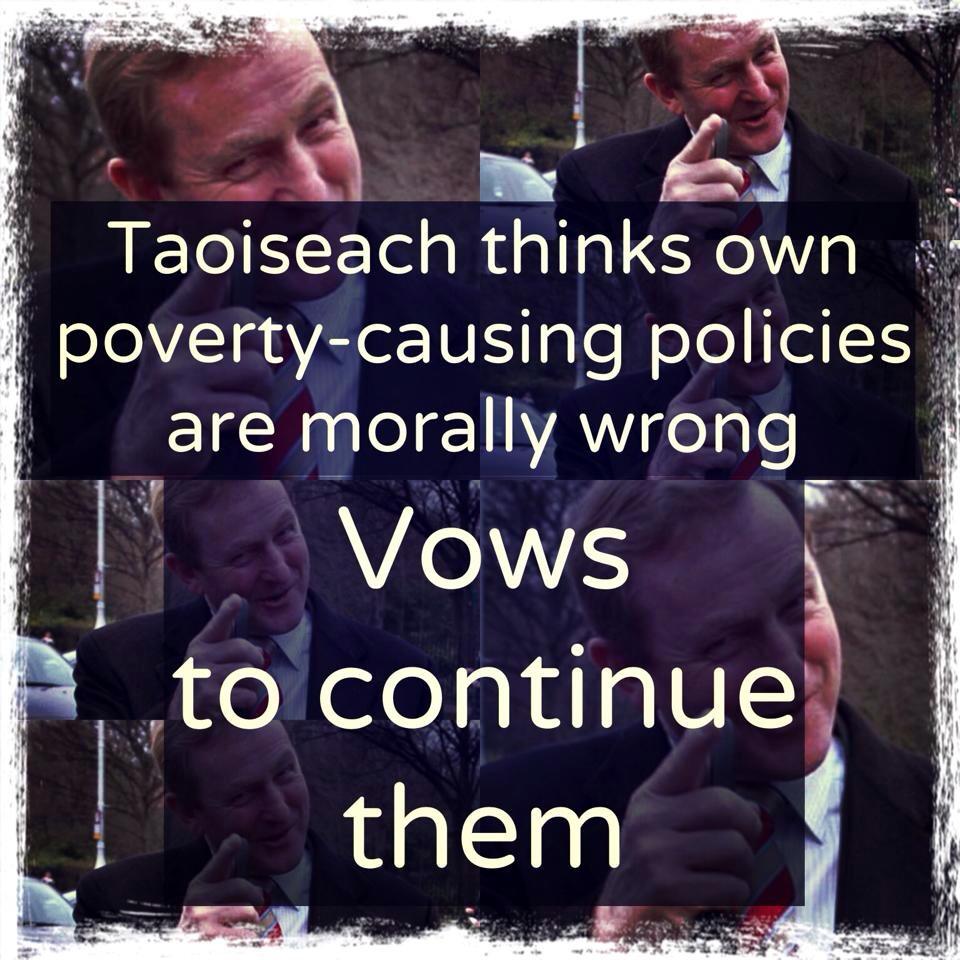 Speaking at the launch of the government’s Low Pay Commission, Kenny said that “It is morally unacceptable for families with people in work to be experiencing poverty”. He did not however announce the abolition of the water charge, the property tax or that the bondholders would not be paid back in order to address this problem. Neither did he, nor Joan Burton, who accompanied him at the launch announce the end of the Jobbridge indentured servitude scheme, where unemployed people get fifty euro for a full week’s work.
Speaking at the launch of the government’s Low Pay Commission, Kenny said that “It is morally unacceptable for families with people in work to be experiencing poverty”. He did not however announce the abolition of the water charge, the property tax or that the bondholders would not be paid back in order to address this problem. Neither did he, nor Joan Burton, who accompanied him at the launch announce the end of the Jobbridge indentured servitude scheme, where unemployed people get fifty euro for a full week’s work.
Neither was there an announcement that clerical workers in public services would see an end of the pension levies and the universal social charge that have driven so many to the point where they were forced to claim family income supplement.
It is also noteworthy that Enda only thinks it’s morally wrong for those in paid employment to experience poverty, and it is quite clear from looking at government policy over the last four years, that this is the consensus amongst the cabinet. You only have value if you are making a profit for someone else or if you are working to ensure the cogs of government keep turning – though, not that much value.

